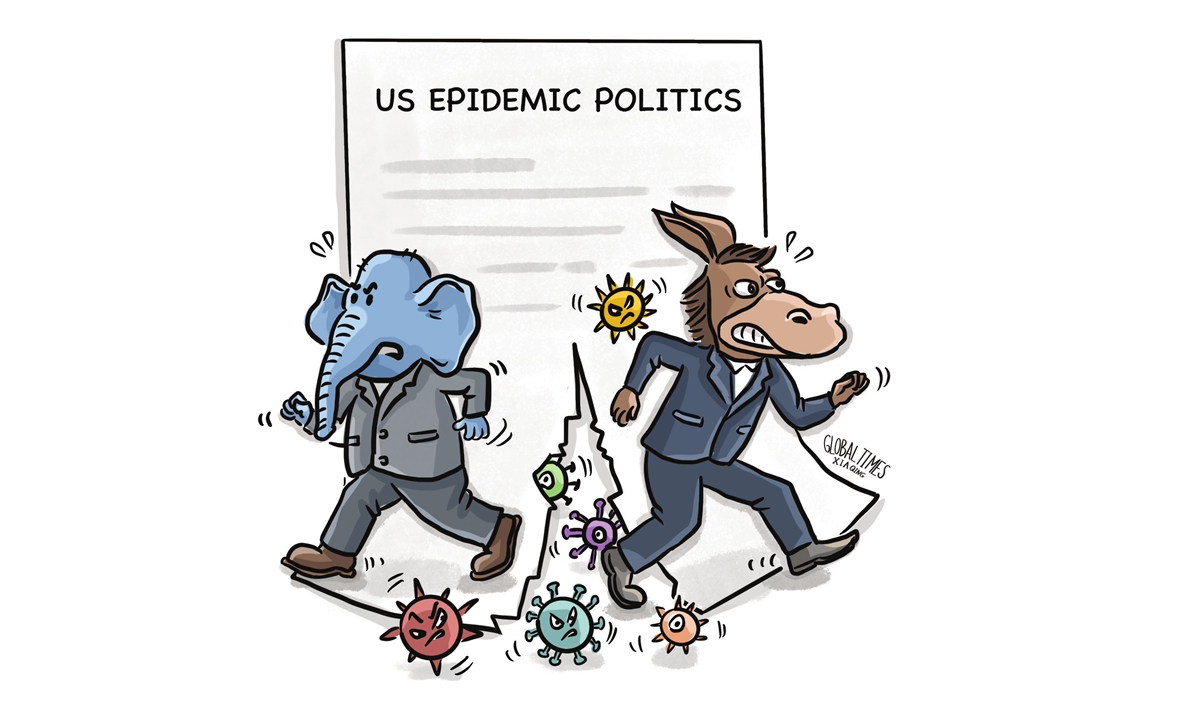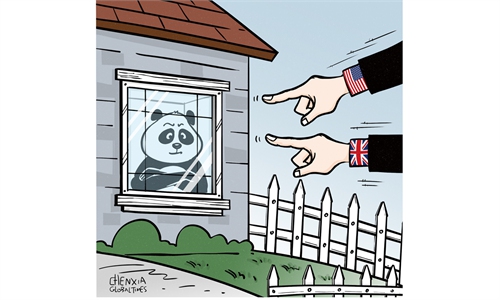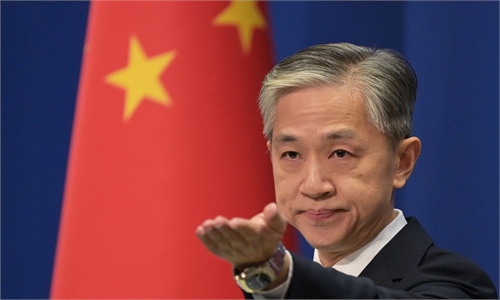
Illustration: Xia Qing/GT
The Economist magazine recently published an article entitled "America's culture wars extend into medicine." By "culture wars," the magazine points its arrows at US political infighting.
The article acknowledges that when struggling with "imperfect decision-making between scientists and politicians" amid the COVID pandemic worldwide, most countries got through without seriously harming science's reputation, yet the US did not. "No institution had a steeper fall in public confidence in 2021 than the medical establishment, according to Gallup. In 2022 this downward trend continued," The Economist said. It later explains that political stances boil down to social identity and virtue signaling, "pledging allegiance to the 'correct' answers on masking, mandates and transgender care has become a badge of identity for firebrands in both parties."
The divisions that are dragging the US down in all aspects are already something that the whole world can see. It is the key cause of political paralysis, economic chaos, a lack of confidence in the established system, and the exacerbation of many existing social problems in the US.
Now it has spread to the medical community, explaining precisely why the US, which holds the cutting edge of medical development and resources, has instead become the biggest "epicenter" of the pandemic.
This is The Economist's concern about the status and strength of the US-led Western world, as well as a reminder to the rest of the world that the US' inability to fight against the epidemic is a lesson and warning against politicizing and weaponizing the epidemic, rather than treating it scientifically and factually. The result is not difficult to imagine; after all, viruses will not talk about politics with you.
In the face of a new virus, the available resources do not match the challenges faced, and this is the case all over the world. Under such circumstances, that one group of politicians say this while another group say the opposite doesn't help address the challenges. However, this kind of political game is exactly what American politicians have repeatedly done in the past three years, turning the virus into a weapon of partisanship.
What are America's culture wars? To put it bluntly, it is the elevation of part of the scientific debate to a partisan one. For example, the vaccine issue - whether it has side effects or not - is a scientific issue, not a political one.
The US should encourage the public to get vaccinated and gradually improve the vaccine and reduce its side effects as much as possible. But what have US politicians done in this regard? They are willing to attend seminars about the side effects of vaccines, deliver their manner of respecting science and then oppose vaccinations. They essentially aim to enhance their political standing and strengthen their electoral advantage, not to fight against the COVID-19.
On the other hand, China's achievements over the past three years are evident, and the US is not qualified to point an accusing finger. Some believed that if China took Washington's reckless approach, an estimated 4.8 million people would die. China's policies dealing with COVID-19 have actually saved millions of lives.
In contrast, China's science-based epidemic fight approach is fundamentally different from the Western politicized approach of "lying flat." China's prevention and control measures have been the result of respect for science and professionalism, instead of being manipulated by politicians for their personal ends, no matter at which stage. This is one of the key factors that have enabled the country to win the battle against the virus.
This can explain why China has been much less hit by the epidemic, and in the future, China will not experience the chaos of infighting over the epidemic like the US. Beijing's vision is to get out of the epidemic, while Washington is still infighting over the epidemic.
Recently, some netizens said that China should not be compared with the US, whose work in dealing with the epidemic is among the worst across the world. This is a sign of awakening.
Some people have realized that the US has done a poor job. Washington can no longer fool China, let alone blame China for the epidemic.
The author is a reporter with the Global Times. opinion@globaltimes.com.cn


